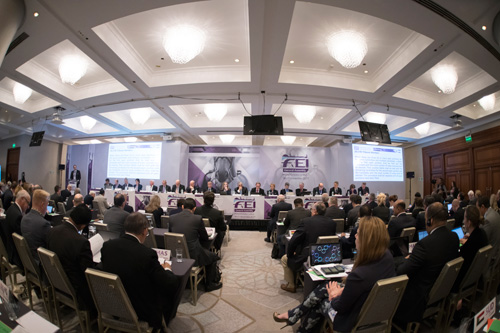In a controversial move, the Fédération Equestre Internationale (FEI), the international equestrian federation, pushed through a far-reaching and dictatorial rule in the general regulations at the annual meeting in Mexico City. Despite strong opposition from entities, this rule grants the FEI's integrity unit the authority to compel individuals involved in disciplinary investigations, including riders, grooms, or officials, to present evidence that could potentially incriminate themselves.
The new rule has sparked outrage from the federations of democratic states, including the Netherlands, Belgium, Great Britain, Switzerland, Sweden, and the United States. They have raised legitimate concerns, particularly related to human rights violations and the nemo-tenetur principle. This principle asserts that no one is obliged to provide evidence against themselves, and no one can be compelled to cooperate in their own conviction.
The federations have accused the FEI of ignoring fundamental legal principles and violating the right to a fair trial. They emphasize that imposing self-incrimination in disciplinary investigations not only goes against international standards but also sets a dangerous precedent for other sports organizations.
The FEI has not yet issued an official response to the accusations of human rights violations. Pending further developments, the equestrian world remains in suspense, with the hope that a fair and just compromise can be reached between the interests of the sports federation and the respect for the fundamental rights of those involved.

